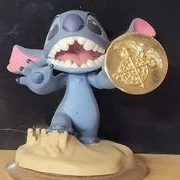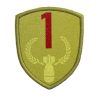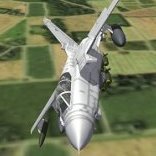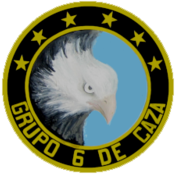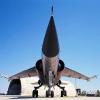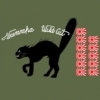Weddel-Williams P-34A Cardinal - 48th Pursuit Squadron, 15th Pursuit Group, United States Army Air Force, December 1941
When the USAAC announced a competition for a new single-seat fighter in 1935 the three main contenders appeared to be the Curtis P-36, the Seversky P-35 and the Vought V-141. Whilst all three featured all-metal construction, retractable landing gear and an enclosed cockpit there was concern that none of these radial engined fighter aircraft would meet the projected performance of the sleek inline monoplane fighters then under development in Europe.
There had already been some USAAC interest in the successful Weddel-Williams series of private racing aircraft earlier in the 1930's leading to the XP-34 but this did not proceed further than the drawing board. However, in early 1936 the USAAC asked Wedell-Williams to design a new fighter aircraft utilising the Allison V-1710 V-12 liquid-cooled engine. Chief Designer Jimmy Wedell quickly schemed a new streamlined low-wing monoplane design around the V-1710-19 inline engine and, favouring manoeuvrability over speed, his radical new design had a smaller wing area than the contemporary Hawker Hurricane and the Supermarine Spitfire with an unusually short fuselage. Whilst the design was known as the Wedell-Williams Model 46 for obscure budgetary reasons the USAAC continued to use the XP-34 designation.
The Model 46 prototype first flew on August 15th 1937 and development and testing moved swiftly. When tested against P-35 and P-36 pre-production aircraft (in the USAAC trials held in March 1938) service pilots concluded that the Model 46 had several advantages over both - including being more manoeuvrable in level flight thus enabling it to quickly get behind its opponents by making tight horizontal turns. These trials led to an order for 240 P-34A's which first entered service with the 20th Pursuit Group at Barksdale Field in Louisiana in April 1940.
In February 1941 forty-two P-34A's were delivered to Hawaii after being loaded on to the aircraft carrier USS Enterprise and flown off the carrier's deck by USAAC pilots when the Enterprise approached the coast of Hawaii. During the Japanese attack on Pearl Harbor on December 8th, 1941 only a handful of the 39 remaining P-34A's at Pearl Harbor were able to take off during the attack. One of the few pilots who managed to engage enemy aircraft was 2nd Lt. Philip M. Rasmussen of the 46th Pursuit Squadron. He was woken up when the attack began and, whilst still wearing his pajamas, Rasmussen raced towards the flight line where most of the P-34A's were either damaged or destroyed. Rasmussen jumped in to aircraft number '86' (belonging to the 48th Pursuit Squadron aircraft) and took off with another three pilots heading for Kaneohe Bay where they engaged eleven Japanese fighters in battle. After shooting down one Japanese aircraft, Rasmussen was attacked by two Japanese Mitsubishi A6M2 Zero fighters. Bullets and cannon shells shattered the canopy, destroyed the radio and severed his aircrafts hydraulic lines and rudder cable forcing Rasmussen to seek refuge in nearby cloud cover before flying back toward Wheeler Field. Landing without brakes, rudder or tailwheel his P-34A was riddled more than 500 bullet holes.
* Sadly, Jimmy Weddel died in a flying incident in 1934.


